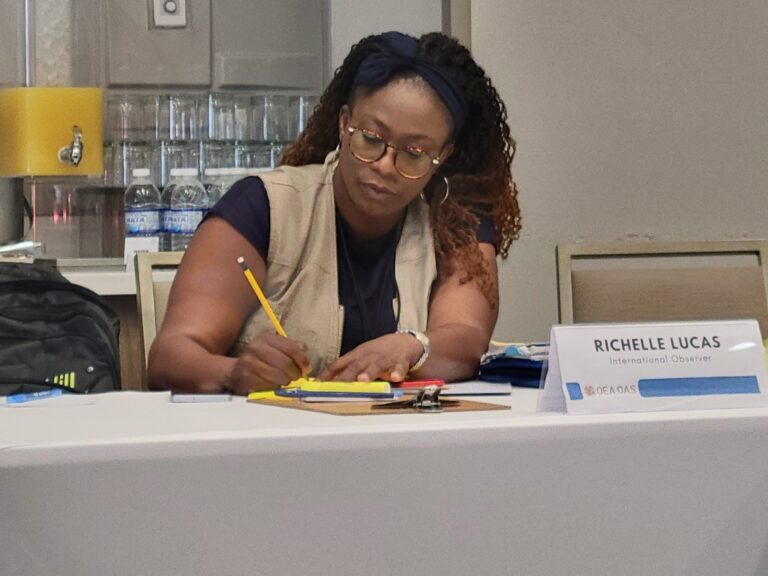Jamaicans vote at Sept. 3 rd for all 63 single-member constituencies (first-past-the-post). The race is competitive: the incumbent Jamaica Labour Party (JLP) seeks a third consecutive term against the People’s National Party (PNP). International observers (OAS) are deployed.
Who’s on the ballot (and the issues they own)
- JLP (Andrew Holness, PM) – Runs on macro-stability and security gains: record-low unemployment (3.7% in Jan 2025), inflation in the BOJ target band, falling murders; promises more infrastructure and wage hikes. Holness has pushed back at Integrity Commission allegations on asset declarations.
- PNP (Mark Golding, Opposition Leader) – Centers cost of living, water/infrastructure gaps, governance and trust, higher income-tax threshold; Golding renounced UK citizenship to neutralize a controversy.
- Minor parties & independents – UIC, JPP and independents are present in several seats but are long-shots under FPTP; they matter mainly as spoilers in close. marginals.
- Salient themes: cost of living, water and roads, crime & policing powers, integrity in public life, and economic resilience post-storms.
What polls say (it’s close)
Late polling has conflicting signals: the RJRGLEANER/Don Anderson series showed a narrow PNP lead, while Nationwide/Bluedot tracking put Holness/JLP ahead on favourability and voting intent.So, turnout in swing seats will decide this.
Likely winner. Scenario readout
Scenario A – Narrow JLP majority (plausible): Holness returns with a trimmed bench. Expect policy continuity: tight macro stance, BOJ inflation targeting, debt reduction, and an assertive anti-crime posture (states of emergency remain debated). Pace on big projects continues; wage promises balanced against investor/tourism concerns.
- Scenario B – Narrow PNP majority: Policy reset on equity and services—bigger push on water/health/education delivery and a friendlier tone to labor; more scrutiny of procurement and integrity frameworks. Near-term business jitters possible if markets assume higher fiscal spends.
- Scenario C – Photo-finish / split verdict: Close seat counts raise litigation/recounts; public order becomes the immediate test. (2020’s contested count still haunts the system; OAS presence help.
Parliament after the vote: what to watch
- There are 63 seats; 32 is a bare plurality, 33 a majority. Because FPTP penalizes third parties, the chamber will be overwhelmingly two-party. Track bellwethers in urban Kingston/St. Andrew and St. Catherine.
Why this election matters (domestic)
- Crime & security: Murders and major crimes have fallen sharply since 2023, with JCF reporting double-digit declines in 2025; sustaining that without over-reliance on SOEs is the governance test.
- Macro & cost of living: IMF’s 2025 review praises Jamaica’s resilience and low unemployment, but flags low productivity, infrastructure gaps, and crime as growth drags. Any fiscal loosening will be watched closely by markets
- Constitutional reform (Republic push): Parliament will shape the path to a republic (potential referendum) and related constitutional bills.
Foreign actors & their interests
- United States: Top trade partner and security ally (Caribbean Basin Security Initiative; SOUTHCOM/JDF partnership). Interests: counter-narcotics, migration, port security, digital/energy investment, and regional stability amid a heightened U.S. naval posture in the southern Caribbean
- IMF/World Bank: Interested in reform continuity—debt anchors, FX market deepening, infrastructure quality, and climate resilience. A fiscal slip or governance concerns could raise financing costs
- China (state firms & lenders): Legacy interests in roads/ports/bauxite; Beijing watches for regulatory and debt-management signals from the next government. (Scrutiny of loan terms and labor practices has risen.)
- UK/Commonwealth: Constitutional change toward a republic will engage London diplomatically; the diaspora also shapes remittances and tourism flows.
Immediate risks & early indicators
- Contentious count or legal challenges → watch EOJ tallies, court filings, and police crowd-management posture
- Policy shock to energy/tourism labor costs (e.g., rapid wage jumps) → monitor business/tourism chambers’ reactions and BOJ inflation guidance.
- Storm season shocks → macro buffers exist, but a major hit could test fiscal space just as a new cabinet forms.

- The center of gravity is close: one or two-dozen marginal seats will likely decide who governs.
- Continuity vs. correction is the core choice: JLP offers macro/security continuity; PNP promises governance reset and service delivery.
- For partners (U.S., IFIs, investors), the key is policy steadiness— crime reduction without civil-liberties backsliding, and growth with infrastructure and integrity reforms.
- Green = safe JLP seats (about 25)
- Orange = safe PNP seats (about 25)
- Gray = battlegrounds (roughly 13 seats)
- 32 seats = plurality, 33 = majority
This schematic helps visualize why the 2025 Jamaican election is essentially a battle for a dozen or so swing constituencies. Whoever can secure a majority of those gray seats forms the government.
Institutional and Social Cohesion Threats
- Erosion of Trust: If corruption or governance scandals are not addressed post-election, public cynicism could deepen, undermining institutional legitimacy.
- Diaspora Influence: Negative narratives among the influential Jamaican diaspora could impact remittance flows and lobbying in Washington and London.
- Generational Divide: Younger voters, more vocal on climate, jobs, and rights, may feel unrepresented, leading to longer-term alienation if neither party addresses their agenda.
Bottom Line
The post-election period carries three main risks:
- Political disputes over close results undermining legitimacy,
- Fiscal slippage that unnerves investors and the IMF, and
- Security volatility if anti-crime strategies shift too abruptly.
Managing these will require the new government to balance continuity with reform, reassure external partners, and deliver quick wins on cost-of-living and infrastructure to avoid disillusionment.
.




